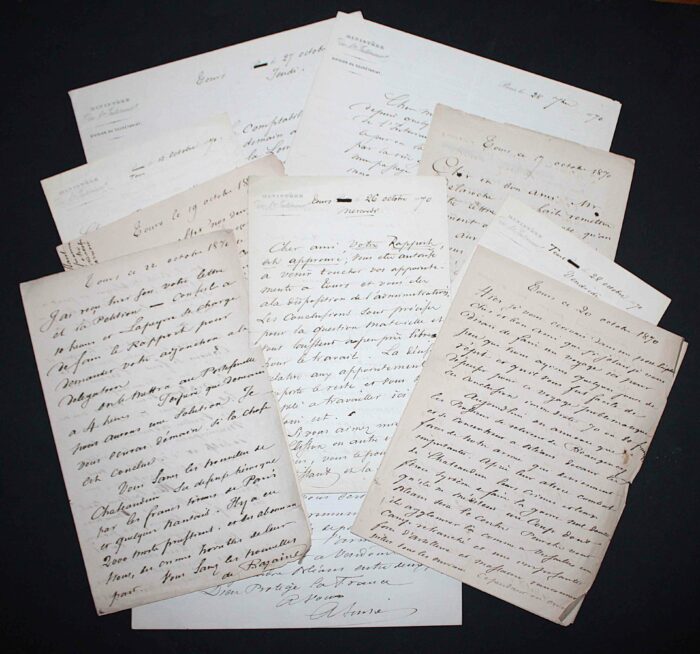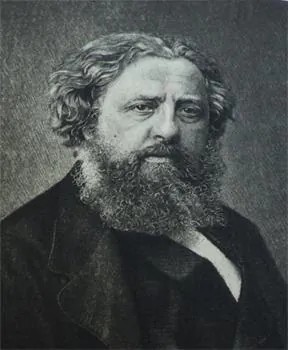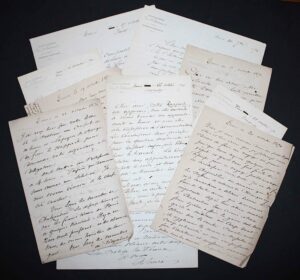Alfred Sensier (1815-1877), art dealer, critic and historian, attached to the Fine Arts Department, he was then a member of the cabinet of the Minister of the Interior. 10 signed autograph letters addressed to Jules Niel (1800-1872), then Librarian of the Interior Ministry. Tours, 28 September – 28 October 1870. 32 pp. in-8° and in-4° (a few tears at the folds).
Fascinating correspondence sent from Tours, at the time when the government delegation settled there with Gambetta.
The recipient, Jules Niel, joined the Ministry of the Interior in 1824 as chief clerk in the trade and colonies office. In 1828, he was promoted to deputy head of the office. In 1830, the July Monarchy appointed Jules Niel sub-prefect of the district of Poligny (Jura). In 1831, he was transferred to the sub-prefecture of Ploërmel (Ille-et-Vilaine), then in 1833 to the sub-prefecture of Bernay (Eure), where he remained for five years. In 1838, he returned to the Ministry of the Interior, where he became head of the roads department. He was responsible for the preservation of several ancient monuments. In 1848, he was appointed librarian of the Ministry of the Interior, a position he held until his death. A bibliophile linked to Charles Nodier and an art collector, he supported Charles Meryon (1821-1868), whose pupil was his daughter Gabrielle (1831-1919), an etcher.
Sensier, having arrived in Tours, recounts his journey from Paris and the morale of the French people. He mentions Gambetta’s arrival in Tours, the capture of Orléans, the resistance being organised in Paris, the formation of volunteer corps and the absence of a true leader. He notes the difficult military situation on several occasions, the life in Tours also complicated (difficulty finding accommodation and high housing costs, for which he gives prices), military life, discipline, the rigidity of the command structure and the need for cannons and gunners. He castigates the administration and echoes encouraging news reaching him from Paris via balloon (success and high morale among Parisians). Sensier talks about the uncertainty of the situation, mentions Gambetta and Thiers, the troops in Tours, the general’s rigour, the valour of the Parisians compared to the ‘spineless’ population of the provinces, and the measures taken in Tours (museum, railway station, bank). He gives news of the defence of Châteaudun, generals Bazaine and Bourbaki, and announces the massive arrival of troops with a view to recapture Orleans. He also gives some news about the Army of the Loire, which is growing and moving towards Le Mans, Vendôme and Blois. Finally, he asks Niel to retrieve two copies of studies by Théodore Rousseau in Nantes, discusses his daily work, and alludes to the artistic production of Gabrielle Niel, his correspondent’s daughter and a student of Meryon.
Detailed description on request.
1 200 €



